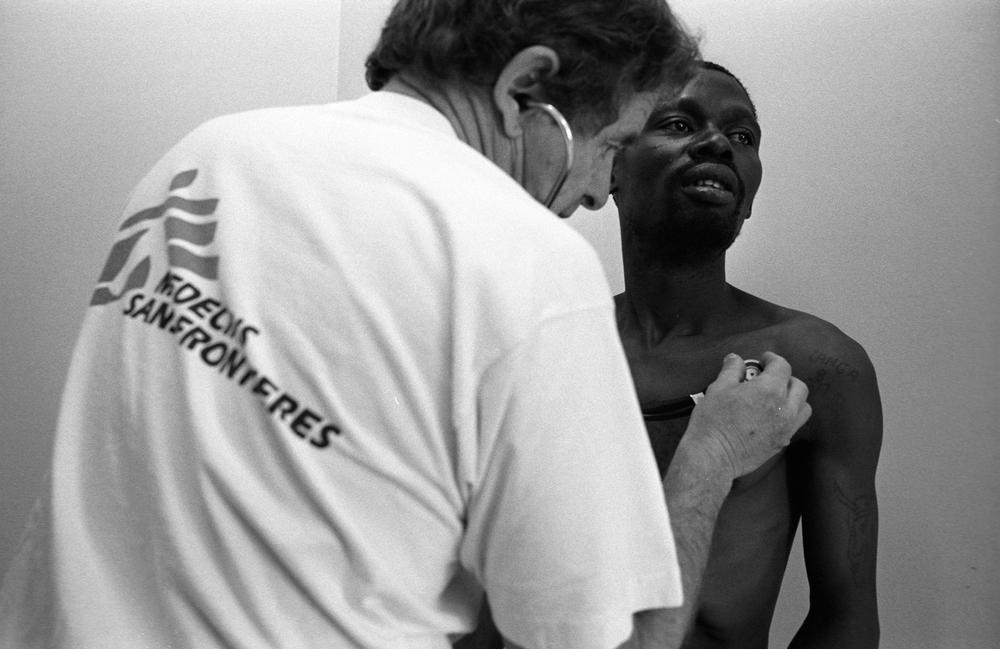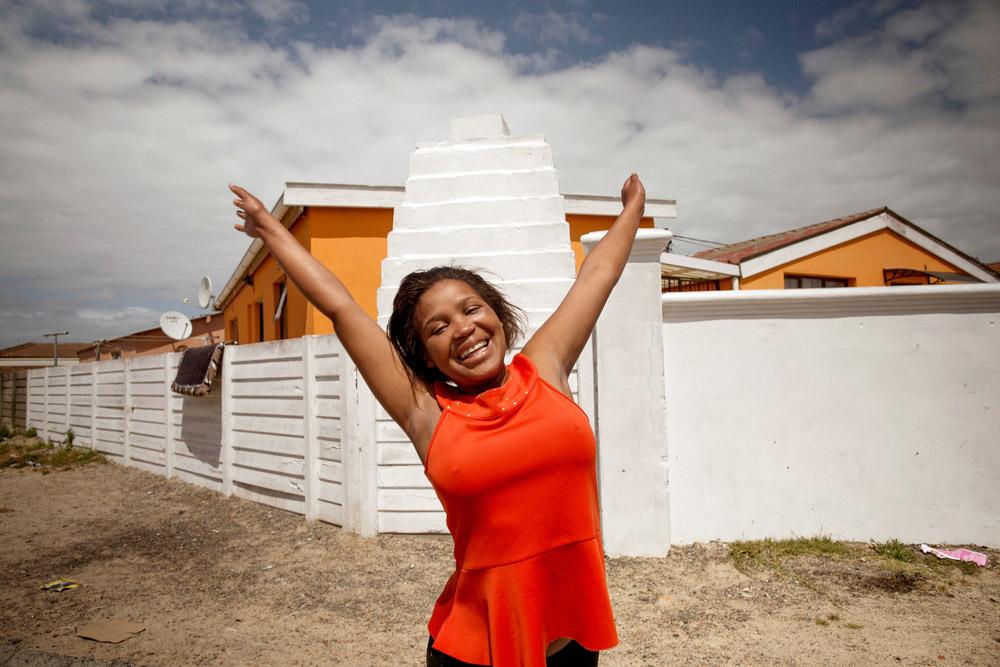HEADS UP: #WORLDTBDAY2023
How do you deal with a disease as ancient as the pharaohs? Try teaching about TB at schools, says MSF.

How do we end a disease that has been with us at least since the pharaohs reigned in ancient Egypt? Try teaching tuberculosis (TB) at schools, says Doctors Without Borders (MSF) TB team in Eshowe and Mbongolwane in Kwazulu-Natal Province.
MSF will tell this story in a media package to be released before World TB Day, 2023. The package will include a short article, a video, and a portion of the test that learners were given to assess their TB knowledge, in case you wish to test your audiences on their TB knowledge!
MSF has run a successful school health programme in King Cetshwayo District since 2012, taking inspiration from the Department of Basic Education’s National Policy on HIV, STIs and TB, which stipulates that “Comprehensive Sexuality Education (CSE) will be a compulsory and timetabled subject in the curriculum, supported by appropriate Learner and Teacher Support Material and teacher training, development and support.”

However, the TB information that is currently shared in school Life Orientation lessons is scant. For this reason, MSF and OneVoice South Africa developed, in 2018, a TB module for grades 8 to 12 and piloted the teaching of this curriculum in 22 high schools. The aim was to impart more comprehensive TB information in schools to achieve better retention of that TB information.
Dozens of educators received training on the module, and these educators, together with MSF mobilisers, delivered TB education to thousands of learners between 2018 and 2021. Learners were tested before and after receiving advanced TB education, and the results were encouraging – learners who persisted with the curriculum tested well. Encouragingly, educators and learners reported that their involvement in the programme enabled them to share TB information with their families and neighbours and thereby do their part in combating TB stigma in communities where coughing and weight loss – both TB symptoms - are commonly associated with witchcraft.
MSF involvement with South African schools
MSF has a long history of designing and supporting school health programs in South Africa.
Between 2012 - 2018, MSF in Eshowe ran a school HIV programme in partnership with local authorities and health facilities. The aim was to reduce new HIV infections and promote prevention methods among high-school students in grades 8 to 12 by task-shifting health promotion to schoolteachers. The programme reached up to 38 high schools reached annually, provided 80,001 learners with Health Education, conducted 28,551 HIV counselling and testing sessions and performed over 10’000 male circumcisions. This school programme was one of several activities run by MSF, which resulted in the project area exceeding the UNAIDS 90-90-90 targets two years ahead of the deadline. MSF’s 2018-2021 schools TB programme is built on the work of the HIV programme.

From 2018 - 2020, MSF in Rustenburg provided awareness sessions focused on sexual and reproductive health in 20 schools across Rustenburg, reaching an average of over 5 000 learners per quarter. This school programme promoted community-based clinic services for victims of sexual violence and referred learners who have experienced sexual violence to dedicated SGBV centres for necessary care and follow-up.
MSF and TB in South Africa
MSF has an even longer history of developing innovative, patient-centred TB approaches in South Africa

- In 2000, MSF started a new HIV project in Khayelitsha at a time when antiretrovirals (ARVs) were not yet available due to exorbitant prices charged by pharmaceutical corporations. Since most of the patients seen by MSF were coinfected with TB, the project would soon expand its focus to include TB.
- In 2004, as South Africa started its national rollout of ARVs to accredited clinics, MSF in Khayelitsha started a pilot project at Ubuntu Clinic to examine the feasibility of integrating HIV and TB services overall aim of improving the efficiency of service delivery for both conditions. This was a world first.
- In 2007, MSF developed a decentralized treatment model for treating drug-resistant TB (DR TB) with the City of Cape Town health services. This model guided the ongoing movement towards decentralising TB services in South Africa.
- In 2011, MSF opened an HIV/TB project called Bending the Curves in the Mbongolowane and Eshowe areas, with the objective of reducing the incidence of HIV and TB through multiple strategies.
- In 2013, MSF became part of the National Department of Health’s bedaquiline clinical access programme. In 2018, after years of MSF lobbying, the National Health Department included bedaquiline in the standard treatment regimens for DR TB, replacing kanamycin, a toxic injectable antibiotic known to cause deafness.
- In 2014, thanks to MSF advocacy efforts, DR TB patients were able to access to generic linezolid, an antibiotic with proven efficacy in treating DR TB.
- In 2018, MSF and partners launch the South African arm of a multi-site drug-resistant TB treatment trial called EndTB to find shorter, less toxic and more effective treatment regimens for DR TB.
- In 2020/21, MSF began offering home-based care to drug-resistant TB patients to shield them and their family members from possible COVID-19 infection at health facilities. In addition to this, MSF screened everyone who lives under the same roof as its TB patients and offered TB preventative treatment (TPT) to all of the healthy people in the house to prevent them from getting TB.

In 2022, following the release of the results of MSF’s groundbreaking TB-PRACTECAL clinical trial, which found a new, safer and more effective six-month oral treatment regimen for DR TB called BPaLM, the World Health Organization recommended the programmatic use of MSF’s 6-month BPaLM regimen. South Africa’s Department of Health undertook to implement a 6-month BPaLM regimen as first-line treatment for DR TB.
About Us
Doctors Without Borders (MSF) is a global network of principled medical and other professionals who specialise in medical humanitarian work, driven by our common humanity and guided by medical ethics. We strive to bring emergency medical care to people caught in conflicts, crises, and disasters in more than 70 countries worldwide.
In South Africa, the organisation is recognised as one of the pioneers of providing Antiretroviral Treatment (ART) in the public sector and started the first HIV programmes in South Africa in 1999. Until today, the focus of MSF’s interventions in the country has primarily been on developing new testing and treatment strategies for HIV/AIDS and TB in Eshowe (Kwa-Zulu Natal) and Khayelitsha (Western Cape).
In Tshwane, we run a migration project, and we offer medical and psychosocial care to migrants, refugees, and asylum seekers, who struggle to access public health services under South Africa’s increasingly restrictive.
Previously we offered free, high-quality, confidential medical care to survivors of SGBV in Rustenburg.
To learn more about our work in South Africa, please visit this page on our website (www.msf.org.za).
To support MSF’s work:
- SMS “JOIN” to 42110 to donate R30 Once-off
- Visit https://www.msf.org.za/donate
Seipati Moloi
